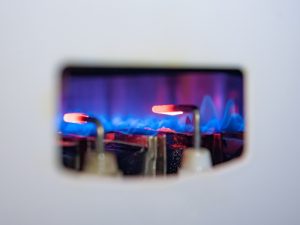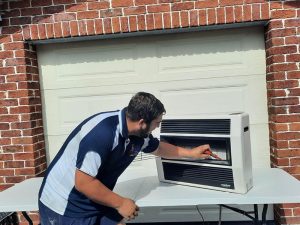Gas heaters are a reliable source of warmth during the colder months, but like any appliance, they can encounter problems. Ignoring issues can lead to expensive repairs or even safety risks. This article explores the common gas heater problems that require immediate attention and why addressing them early can save you time and money.
What are the common warning signs of gas heater problems?
Understanding the early warning signs of gas heater problems is crucial to preventing major issues. Here are the most common signs that indicate your heater may need attention:
- Strange noises: Unusual sounds, such as popping, banging, or whistling, can indicate problems with the internal components or gas flow.
- Pilot light issues: If the pilot light goes out frequently or doesn’t stay lit, there may be a problem with the thermocouple or gas valve.
- Gas odour: The smell of gas is a serious concern. If you detect this, turn off the gas supply immediately and contact a professional.
- Fluctuating temperature: If the temperature in your room rises and falls unexpectedly, it could indicate issues with the thermostat or the gas flow.
If you notice any of these symptoms, it’s essential to have your heater checked by a professional as soon as possible. According to research, regular maintenance plays a key role in preventing the potential dangers of using gas devices at home, such as gas leaks and carbon monoxide exposure.
How can you identify unusual noises from your gas heater?
Gas heaters can make noise during normal operation, but some noises may signal an underlying problem. Here’s how to identify if the sounds coming from your heater require attention:
- Popping or banging: This could indicate air or moisture trapped inside the system. If not addressed, it may lead to further damage.
- Whistling: Often caused by airflow obstruction or a malfunctioning fan, whistling should be checked to prevent further mechanical stress.
- Humming or vibrating: A consistent hum or vibration could signal a loose or worn-out part that needs replacing.
Can poor heating performance signal major problems?
If your gas heater isn’t performing as expected, it may be more than just a minor inconvenience. Poor heating performance can point to significant issues within the system. Here are a few signs to look for:
- Uneven heating: Some areas of the home may be warmer than others, suggesting a blockage or malfunction in the heating mechanism.
- Cold air blowing: If your heater is blowing cold air instead of warm, it could be due to a pilot light or thermostat malfunction.
- Delayed heating: If the room takes longer than usual to warm up, there may be an issue with the gas flow or the burner.
What is the impact of a gas heater not reaching desired temperatures?
When your gas heater fails to reach the desired temperature, it’s not just frustrating—it can also signal deeper issues with your system. Some possible causes include:
- Thermostat malfunction: A malfunctioning thermostat could prevent your heater from reaching the correct temperature. This may require recalibration or replacement.
- Gas flow issues: If the gas flow is restricted, the heater may not produce sufficient heat. This could be due to blockages or faulty valves.
- Faulty burner: A malfunctioning burner may fail to produce the required heat, causing insufficient warmth in the room.

Why is it crucial to address gas heater problems early?
Taking prompt action when you notice gas heater issues can save you from costly repairs and prevent safety hazards. Delaying repairs can lead to:
- Safety hazards: Unresolved issues such as gas leaks or carbon monoxide buildup can be dangerous to you and your family.
- Increased repair costs: Minor problems can quickly escalate into major issues, leading to more expensive repairs.
- Inefficiency: A poorly maintained heater uses more energy, leading to higher utility bills.
Addressing gas heater problems early ensures compliance with Safe Work Australia guidelines, promoting safety and preventing potential hazards.
What are the risks of not maintaining your gas heater regularly?
Neglecting to maintain your gas heater regularly can have serious consequences. Some of the risks include:
- Gas leaks: Seals and valves can degrade over time, causing gas leaks. Choosing the best gas line material for safety & longevity is essential to prevent leaks and ensure reliable heater performance over time. A leaking gas heater poses a significant safety risk and should be addressed immediately.
- Carbon monoxide poisoning: Inadequate ventilation or a malfunctioning heater can lead to carbon monoxide buildup. This colourless and odourless gas can be fatal in high concentrations.
- Fire hazards: Dust buildup and faulty parts can cause your heater to overheat, increasing the risk of a fire.

The NSW Government’s Fire and Rescue department recommends annual servicing of gas heaters to prevent such risks.
Get expert gas heater repairs today!
For fast & reliable gas heater repairs, trust Apex Gas Heater Service to resolve any issues quickly, ensuring your heater runs smoothly and efficiently throughout the year. Our team of licensed technicians is experienced in diagnosing and repairing all types of gas heater problems, ensuring your home or business stays warm and safe. Our customers rave about our excellent service, with many recommending us for our reliability and efficiency.
Whether you need a quick fix or regular servicing, we’re here to help. Don’t let gas heater issues disrupt your comfort—contact us today to schedule your service.
For more details or to book an appointment, get in touch with Apex Gas Heater Service or visit our website. We’re here to assist you with all your gas heater needs across Sydney.
Frequently Asked Questions
- How often should I service my gas heater?
To ensure it runs efficiently and safely, it’s recommended that you service your gas heater at least once a year.
- Can I repair my gas heater myself?
It’s best to consult a licensed technician for any repairs to ensure safety and compliance with regulations.
- What should I do if I smell gas?
If you detect the smell of gas, turn off the supply, ventilate the area, and contact a professional immediately.
- Why is my gas heater making a hissing sound?
A hissing sound could indicate a gas leak or an issue with the burner. Immediate professional attention is necessary.
- How can I improve the efficiency of my gas heater?
Regular maintenance, cleaning filters, and checking for gas flow issues can help improve the efficiency of your heater.
- What’s the difference between flued and unflued gas heaters?
Flued heaters vent combustion gases outside, while unflued heaters do not, making them less suitable for indoor use in some areas.
- Is it safe to use a gas heater with a malfunctioning thermostat?
No, it can be dangerous. Get it repaired immediately.
- How long do gas heaters typically last?
With proper maintenance, they can last 10 to 15 years.
- What are the signs that my gas heater needs replacing?
If your heater is constantly breaking down or is no longer efficient, it may be time to replace it.
- How can I prevent carbon monoxide poisoning from my gas heater?
Regular servicing and ensuring proper ventilation are key steps to prevent carbon monoxide buildup.

